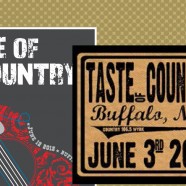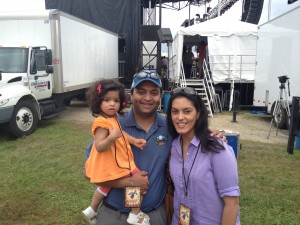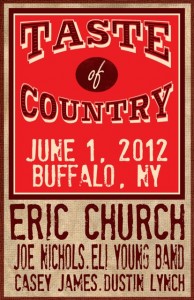
Building Affinity, Virtually and Physically
“A local radio host can be a huge celebrity in town,” says Dhruv Prasad ’95. If Ryan Seacrest, TV host of American Idol, appeared alongside Brian Scott, the K2 Radio morning DJ, at a mall in Casper, Wyoming, Scott would be swarmed and Seacrest would be standing by. People feel affinity for their local radio stations, Dhruv claims. Since 2010, Dhruv and his partners have purchased 310 local radio stations along with 325 local companion websites in 66 small to mid-size markets — like Odessa, Texas; Rochester, Minnesota; Buffalo, New York; and Boise, Idaho. Townsquare Media also owns national music and entertainment digital properties, and produces approximately 500 music and non-music annual events.
At the recession’s nadir in 2009, Dhruv and four investor partners spent a year scouring the market for “reasonably priced” acquisitions in the traditional media market. Advertising was in free fall; the Internet was disintermediating TV and cable; and newspapers seemed dead or dying. By contrast, listener trends in radio were stable. Research found that 91 percent of the public listened to and interacted with radio each week. Brand identity in local radio was strong; attachment to local broadcast personalities was “sticky,” as Dhruv describes it, and not at significant competitive risk. “Radio is the most ‘emotional’ of all entertainment,” Dhruv contends. “People don’t deface their cars with New York Times bumper stickers, but in Twin Falls, Idaho, they do paste 98.3 The Snake, Classic Rock on the pickup. After all, local DJs have been ‘blogging’ for years, and radio stations have long promoted live events, particularly in music,” Dhruv points out.
 Of the various forms of “traditional” media, radio was in the best position to grow, the group determined. In 2010, with their first radio acquisitions, they began implementing a plan to buy great radio brands, operate them well, and on the back of that, build both digital and live events businesses from scratch. Today, Townsquare Media is the third largest owner of radio stations in the country, one of the fastest-growing companies in the world online, and one of the largest promoters and producers of live events, particularly multi-day music festivals, in the country.
Of the various forms of “traditional” media, radio was in the best position to grow, the group determined. In 2010, with their first radio acquisitions, they began implementing a plan to buy great radio brands, operate them well, and on the back of that, build both digital and live events businesses from scratch. Today, Townsquare Media is the third largest owner of radio stations in the country, one of the fastest-growing companies in the world online, and one of the largest promoters and producers of live events, particularly multi-day music festivals, in the country.
While the digital business ramped up quickly, Townsquare experimented, that first year, with promoting a country music tour, which although successful, led them to shift their portfolio to annual, recurring events like music festivals. Dhruv, who says he “kind of liked live events and has a passion for music,” took over managing the numerous festivals, as executive vice president of live events. Today, Townsquare Media’s events across the country attract roughly one million people annually.
“Rather than marketing for someone else’s brand, we decided to develop our own assets and build their value,” Dhruv says. “Music festivals are not as talent dependent as music tours are. People queue up for tickets even before the artist lineup is complete. That’s because of a level of trust and overall expectation: The audience comes back for all of the elements — the camping, the crowd, the food, the emerging superstar musicians. People plan to go, year after year, as a group.”
Successful festivals, music festivals in particular, are experiences. “In fact, they are the social, ‘we’ experience that is largely missing now that social activity has been subsumed by the Internet,” Dhruv says. “As the person who manages the events, my job is more like the cruise director.” Dhruv is clear that this level of events management is a customer service business. People who come make an investment — of money, time and even reputation. You can always count on complaints, and Dhruv claims that his team reaches out, listens, and tries to bring each person around. If complaints reach a certain volume, Dhruv uses social media, and he personally responds to individuals, virtually or physically, in the customer service tent on-site. “We want people to come away happy, satisfied, delighted even. An event is an emotional experience, well-matched with radio in that respect, and they’ll associate that emotion with our brand.”
 Some festivals have been running for years, like Country Jam in Mesa County, Colorado, which has developed loyal audiences for 20 years. His firm started others from scratch, like “Taste of Country,” now in its third year. Located in Hunter Mountain, New York, it was the first, multi-day, overnight country music festival in the Northeast. “We do live events in several categories,” Dhruv says, “and for each one there’s a captain on my team who is focused on that series — music, 5K races, beer festivals, expos and trade shows, and local events.” Dhruv’s team is involved and leads every component of each festival. The firm has built out event-management and production capability, but they do everything, including talent, food and beverage, campgrounds, transportation, tickets, marketing (a core competency with in-house radio and digital support), and then solving problems (calmly) on-site. That is, every problem short of weather, which is the single most important factor outside of their ability to “own every piece of the value chain.”
Some festivals have been running for years, like Country Jam in Mesa County, Colorado, which has developed loyal audiences for 20 years. His firm started others from scratch, like “Taste of Country,” now in its third year. Located in Hunter Mountain, New York, it was the first, multi-day, overnight country music festival in the Northeast. “We do live events in several categories,” Dhruv says, “and for each one there’s a captain on my team who is focused on that series — music, 5K races, beer festivals, expos and trade shows, and local events.” Dhruv’s team is involved and leads every component of each festival. The firm has built out event-management and production capability, but they do everything, including talent, food and beverage, campgrounds, transportation, tickets, marketing (a core competency with in-house radio and digital support), and then solving problems (calmly) on-site. That is, every problem short of weather, which is the single most important factor outside of their ability to “own every piece of the value chain.”
“My role isn’t so far away from my past in the private equity investing world. You’re studying the data, investing money, and making bets about how customers — festival goers and event attendees — will react to the product,” Dhruv says. The element of risk and reward is omnipresent. He does claim that nothing prepared him professionally for the music event side of the business, including managing the Dartmouth College radio station during his undergrad years.
“A short memory,” he says, is the personal skill he needs most, “so I can learn from my mistakes but not get consumed by them. I have to remember that the best event producers in the world make money 75 percent of the time; even the top tier loses 25 percent. That’s disheartening, but you need to get beyond the losses.”
Resilience is important, too. This job is demanding. From May, when the festival season starts, through September, Dhruv can count on only a couple of weekends at home. It’s also unglamorous, he says: “It’s very hand-on; you can find me checking IDs, taking tickets, picking up trash, dealing with a line outside the customer service tent.
“I’m willing to learn what I don’t know, and this industry is interesting. Working with artists and entertainers, the subject matter is great, and people drawn to the entertainment industry tend to have big, charismatic personalities,” says Dhruv. “I spend lots of time in places that many people don’t know anything about, with lots of people I don’t know. I get a sense for the many different faces and pulses of America. Perhaps best of all, as my wife says, I finally have a job where my encyclopedic knowledge of rock music can be put to use!”
by Cathleen Everett



